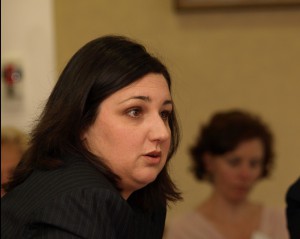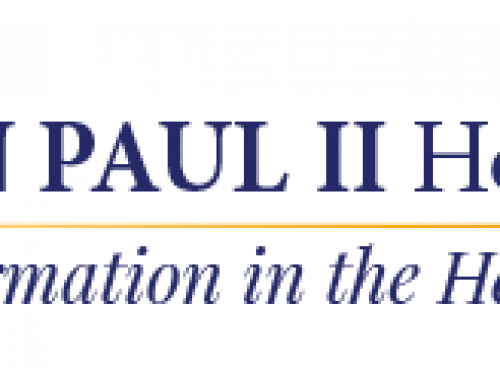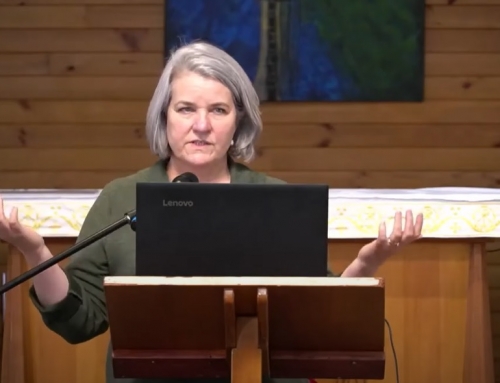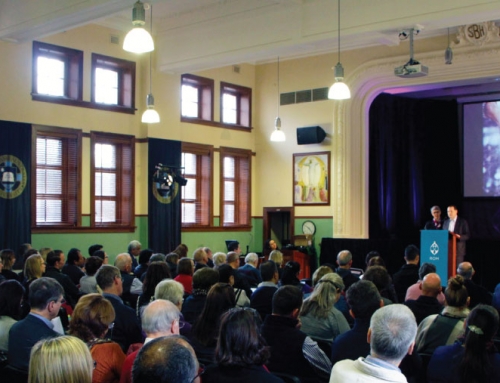 Bernadette Devine addresses the Roundtable on the challenges of acquiring adequate training for counsellors working in the Catholic tradition.
Bernadette Devine addresses the Roundtable on the challenges of acquiring adequate training for counsellors working in the Catholic tradition.
There is currently not one comprehensive, degree awarding counsellor training programme in marital therapy available in Australia that is in harmony with the Catholic tradition. This presents both a challenge and an opportunity to the Australian Catholic community in general and those entrusted with the pastoral care of marriages and families in particular. I am of the view that Catholic universities across the world largely abandoned the development of thought in the area of psychology, with faculty accepting entirely secular views and methods, largely based on evolutionary theories (adaptation). Thus there has been little contribution from Catholic scholars to deepen or extend the debate about the use of psychology and counselling to assist individuals, couples and family with a range of mental health and relational problems. This is despite the fact that the “Catholic sector” is a major force in service provision to distressed individuals and families in Australia and abroad.
At present here is very little capacity for theology as discipline to dialogue with psychology. If this work is to re-commence, it would seem that it will require Catholic philosophers, theologian and psychologists/ social workers/ counsellors to work towards creating a shared language in which they can dialogue; and work to translating this in a way it can influence secular psychology in the development of counselling theory and practice that brings about not just the extinguishing of symptoms (potentially only a short term outcome) but enhanced flourishing of individuals and families.
Dr William Doherty, Professor of Marital and Family Counselling at the University of Minnesota wrote in the Psychotherapy Networker in December 2002 of his concerns about the standards of marital counsellor training and practice in the United States. Writing entirely from a secular point of view, Dr Doherty was able to recognise that stable marriages are a great good to individuals and society and that clients often were ambivalent about taking actions contrary to their marital commitments and were looking for therapeutic solutions that would ease their suffering while maintaining their commitments to spouses and children. His concern centred on how therapists might actually work against client wishes to bring about short term relief but offer little to encourage flourishing in the individual and their family.
Dr Doherty focused particularly on problems with the ‘pseudo-neutrality’ in therapists, counsellors approaching marital therapy as if it were individual therapy, consumerist notions of marriage and pathologizing of conflict in the couples that was in fact due to counsellor lack of skill. I would add that many models of counselling are inconsistent with human nature as understood from a Catholic perspective and thus are doomed to offer only superficial assistance.
Secular psychology has and will continue to offer useful insights in how to understand and assist individuals, couples and family facing psychological problems; however a Catholic therapist needs tools to critique the underlying assumption of these theories and assistance in how to develop models of therapy that integrate the best theories, methods and skills to assist our clients.
Catholics wishing to enter the profession of marital counselling need to be confident that they will obtain from counsellor training, preparation that will give them the following:
- Recognised qualifications that will allow them to be registered with their appropriate professional body, obtain employment and provide a quality service to vulnerable clients
- A through grounding in an adequate anthropology that will allow them to understand what constitutes human flourishing from a Catholic Christian perspective
- Critique secular theories and methods of counselling and psychotherapy to understand the implications of such theories for the flourishing of clients
- Capacity to determine what is useful from the range of theories and models available and the skills to develop an integrated model/s inclusive of relevant philosophy, theology, psychology and counselling theory
- The differences between counselling and spiritual direction and the relationship between the two
- How counselling models can be ethically applied to Catholic clients, persons of other faiths and persons of no particular religious belief
- The role of sacramental life and prayer in healing
- Counsellors would need to be schooled in research based best practice in harmony with ethical teaching to provide best opportunities for healing
- Would include work on ones self as a “wounded healer” and understanding of the vocation of counselling in the life of the church
Practical challenges to this undertaking will be:
- The lack of articulated published work in the area of integration of philosophy, theology and psychology. We need more theologians, philosophers and counsellors to take up an academic interest in this area.
- Lack of academic staff that have sufficient knowledge and experience of integration and therapeutic skill to teach and mentor beginning counsellors
- We may need to import staff from overseas or commence offering scholarships to overseas institutions for training that can be brought back to Australia.
Should a degree bearing institution seek to undertake the development of such a programme, it would be important to heed the warning of people such as Dr Doherty about the need for specifically trained marital and family therapists; it would be of little use that another ‘Masters of (generalist) Counselling’ enter the marketplace, even if it had “Catholic” stamped on it. A little bit of knowledge can be a dangerous thing. Good will, in my opinion, is not enough.
Bernadette Devine MSW
Couple and Family Therapist, Sydney Australia
Bernadette Devine has a masters degree in social work majoring in counselling and has ten years experience in counselling adults, children, couples and families experiencing relationship difficulties. She has been involved in the development and delivery of pre-marriage education programmes and other group work programmes designed to enhance relationships. Bernadette has lectured in the Faculty of Social Work at the Australian Catholic University on social work with families and on groupwork. She currently assists children, parents and the judiciary in situations of high conflict and/ or complex family breakdown.




